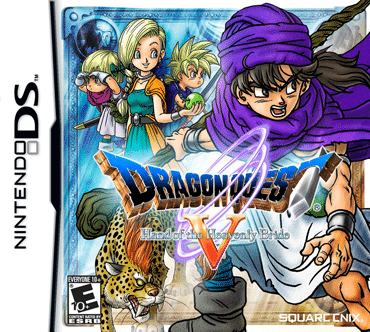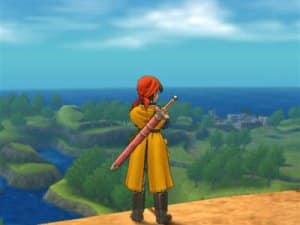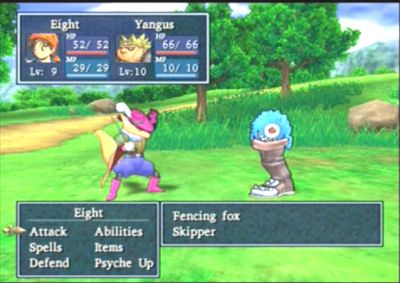For most people who grew up playing games (like me, for example), would be exposed to various different genre of games. For us old gamers, playing games are more geared towards the experience and the story, which I found both of them lacking in most games nowadays. Most games nowadays tend to be focused on graphics and the complexity of the game mechanics. Although it might work for first impression, but over time, it becomes saturated and boring.
However, there is one single series that stayed true to a traditional RPG mechanic. The Dragon Quest series. First published as the Dragon Warrior in the US market, the series has spawned nine incarnations of the main series, not counting several spin-off games.
Dragon Quest. A real quest.
The Dragon Quest series, and all of its main games, focuses on a journey that the hero must took (usually named by the player, as most of traditional RPG games do), meet and gather acquaintances during the journey, and defeat the evil force that is trying to take over the world. As cheesy as it might gets, the strength of the series relies not on the plot or storyline, but the character development along the journey. And this is one of the qualities that made Dragon Quest different.
Take for example, the fifth game, Dragon Quest V, which was previously rereleased for Nintendo DS as Dragon Quest: Hand of the Heavenly Bride. The game focuses on the journey of the hero as he grows from a mere child, to an adult, marrying, and having kids. Of course the game is not another Harvest Moon game, but the journey itself spans several decades (in game years). This is why the series is called Dragon Quest. It truly is a quest.

Dragon Quest V box art, showing one of the future brides in the background.
Quest with a small team.
Although some games chose to have too many team members, Dragon Quest instead focuses on a number of group members (most often, four or five members), and really develop the journey and the storyline. This enables the writers to focus on the development of the character, which can be extended to provide a storyline, rather than the other way around. There are no characters that serve as a sudden deus ex machina. All of the characters are very well thought.
One can argue that by having a small team, the writers were not capable of developing the storyline to match the diversity of those with a large number of characters. As much as I want to agree with this statement, I really suggest that people would play Dragon Quest VIII: Journey of the Cursed King and finish it first and rethink that statement. It is one of the most wonderful game ever existed, and beautiful too. The storyline is diverse, the plot is deep, and the graphics are stunning for PS2 standard. It is one of the best games in Square Enix list, and top four of the greatest game after Final Fantasy X, Final Fantasy VII and Dragon Quest III.

Landscape in Dragon Quest VIII. And yes, this IS the world map, not an FMV.
From one quest to another.
Another thing that sets apart Dragon Quest series is that, in all of the main games incarnation, they did not overcomplicate the game mechanics. Rather than going awkward like Final Fantasy series that seemingly invent new battle system in every single game, it stayed faithful to their simple turn-based battle system, and improved it over the years. This eliminate the learning curve when playing the game, and makes old fans like me, wanting to return to play the game.

The simple turn-based battle system that the series is famous for.
The first three series are a part of a continuity of Erdrick’s Trilogy, and the fourth, fifth and sixth are part of a trilogy called the Zenithia Trilogy. The seventh, eighth and ninth game are of separate continuities. The ninth game, Dragon Quest IX: Sentinels of the Starry Skies were developed for Nintendo DS, therefore have a lighthearted storyline. The upcoming tenth game are currently being developed for Wii.
Final words.
As with Suikoden series, it is unfair to sum up the series in just one post. Each and every incarnation of the game brought different unique experience for the series. This series is one of the series that prosper because it stayed true with its roots, rather than overcomplicating the mechanics.
Although this post might be unrelated, I just want to have a quick catchup with you guys. This is my final week on the exams of my uni life. After this, I will try to apply for residency in Australia, so wish me luck. And on that note, once I got free time, I will surely post the benchmark that I promised you.
See you next post..!
jovee~
Images courtesy of Wikipedia.
